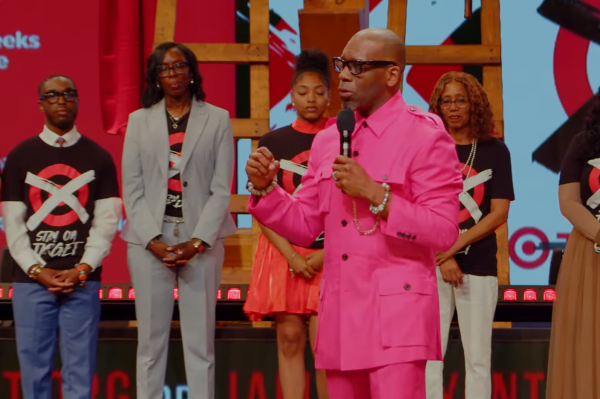Why some people remain in sin, bondage and brokenness

Adapted from the Sexual Healing Reference Edition by David Kyle Foster
The Proper Foundations Haven’t Been Laid
It’s a problem of putting the cart before the horse. We too often launch off into man-made solutions that can never produce the interior transformation that is necessary for lasting freedom. Such “solutions” often teach us (overtly or covertly) to rely on a “system” rather than on God.
Worldly solutions are “maintenance programs” that teach us to keep ourselves from falling by our own wisdom, discipline and power. They can be helpful in a secondary way, but should never be offered as the primary solution.
In contrast, God offers a “transformation program” by which He heals the underlying wounds, transforms the will and keeps us from falling by His power and love (Jude 24; Psalm 37:23-24, 55:22; 1 Peter 1:5).
True freedom comes not from focusing on the bondage, but on the Savior. In 2 Peter 1:3, the Holy Spirit says that through our knowledge of Him, God’s divine power has already given us everything we need for life and godliness. The solution, therefore, is not found in the wisdom of the world. It is found through intimate knowledge of Him and the appropriation of the power that already resides within us by virtue of His divine presence.
Self-Deception
Some people don’t want to change because they receive too much sympathy, affirmation and attention by staying broken. Others recoil because of the pain that results from revisiting the wounds that have contributed to their dysfunctional behavior.
Our inclination is to deceive ourselves into believing that we want freedom from something when we really don’t. Our hearts are deceitful and duplicitous (Jeremiah 17:9; Matthew 15:19). For example, I used to regularly cry out to God for freedom from a particular bondage. One night the power of God fell on me and I knew that He was finally answering my prayer. But to my utter shock, my first thought was “Oh no!” In that moment, I realized that I had been begging for deliverance from something that I still wanted. Hidden within the recesses of my mind, I didn’t think I could live without it. Deep in the interior of my heart, I still loved it. My pleas for help had not been coming from a desire to walk in holiness, but from self-deluded, performance-based religion.
Primary Reasons for Failure to Find Freedom
1. Failure to Make an Across-the-Board Commitment to Holiness
The Kingdom of God is not a supermarket. We cannot say that we want freedom from one sin without being willing to be freed from them all.
God wants us to commit to holiness at every level. Thankfully, He does not lay them all upon us at once, but brings them up as we are ready to deal with each one. As we forsake the things of the world and fix our heart permanently toward the things of God, He then responds with revelation and empowerment.
2. Failure to Believe In and Act Upon God’s Power to Deliver and Keep Us
Most of us haven’t a clue just how much power God has and how little power Satan has. We need to pursue God in His Word to understand and believe who we are in Christ and the authority He has given us (Luke 10:18-19).
I recommend “truth therapy” - regular meditation on the truths of Scripture, even when they seem to contradict what we feel and experience in our battle with sin (Hebrews 11:1).
Some of us are so enslaved to our feelings that we are incapable of believing anything else. When I fail to become planted in the ground of my identity in Christ, His call on my life, and His empowerment of that call, I’m a sitting duck for the lying thoughts and feelings that invade my soul.
3. Failure to Undergo a Transformation of the Will Through a Belief In and Embracing of God’s Unconditional Love (Jeremiah 31:3b-4a)
We are in a partnership with God. His part is to provide the grace, love and power that changes our heart and makes us willing to obey. Our part is to pursue His presence. As we believe in His unconditional love, we’re empowered and motivated to forsake sin.
One day, I was in the midst of committing a besetting sin when the Lord spoke to my heart, saying, “If you turn to me right now, I will love you, forgive you and embrace you.” Ignoring the voice, I continued with my sin until satisfied, at which time the Lord repeated the same words to me.
It was a moment I’ll never forget as I realized that His focus was not on my sin, but on His desire to communicate to me that all He really wanted was for me to turn to Him and receive His love. In that moment, He had so taken my heart by this otherworldly love that I now wanted to do His will. In essence, He changed my will through the repeated experience of His grace and love. For the first time, I chose to do His will, not because I was supposed to, but because I wanted to (Titus 2:14). “For it is God who is at work in us both to will and to do that which is according to His good purpose” (Philippians 2:13). In essence, we just need to get under the spout where the glory comes out!
4. Failure to See Healing as a Process with a Purpose
As we live in intimacy with Him, God shows us the root causes of our behavior, the needs that we have been trying to meet, and His more perfect provision to meet those needs. Through our pursuit of healing, we develop a relationship of love and dependence on God because we have need to turn to Him often for power over temptation and healing from brokenness.
Bondage is essentially a problem of broken relationships – first with God, and second, with human beings. We must come to know Him as He really is and forsake the fiction that our minds have created that has convinced us to run from Him and not to trust Him.
5. Failure to Develop an Intimate Relationship with God the Father
Many of us fear intimacy. It is where we’ve been hurt. But intimacy with our perfectly loving Father is another matter. Jesus said that if we have seen Him, we have seen the Father (John 14:9). Do you love Jesus? The Father is just like Him!
Another fear is that we intuitively know that intimacy with someone means commitment and a loss of independence. But we soon learn that intimacy is the deepest level of knowing, of loving and of feeling. It produces the fruit of inner joy. Foundationally, it has to do with our response of love to the sacrifice of Jesus on the Cross.
6. Failure to Humble Ourselves in Absolute Dependence on God
The pride of self-sufficiency and independence is the fruit of ignorance. The truth is that we are already, completely dependent on God’s power and wisdom in order to have any kind of meaningful existence.
In our culture, humility is considered a weakness. We think that life’s problems are challenges that God expects us to deal with on our own. However, without continual dependence on God, we’re like infants left out in the middle of a freeway. We are completely dependent on God to reveal to us what is true as distinguished from what the world says is true (1 Corinthians 1:18-31).
Jesus said that without Him, we can do nothing (John 15:5). Consequently, the closer I get to Him, the longer I sit at His feet and allow Him to uncover the depths of my heart, the more I am going to grow in the humility of understanding the grace that I stand in, and I will love Him even more. And so, our first response to bondage, brokenness or temptation must always be one of utter dependence that turns to God for power, wisdom and strength.
7. Failure to Learn & Practice Spiritual Warfare
The Bible teaches that the weapons of our warfare are mighty to pull down strongholds – but only when employed in the ongoing reality of these first six pillars of incarnational relationship and empowerment. In other words, spiritual warfare involves using the power of God, the wisdom of God, the discernment of God, the peace of God, the faith of God and the love of God to proclaim the will of God at any given moment.
Those of us who live in the defeat of habitual sin have not yet fully fallen in love with Jesus. We have not received the depth of the revelation of His love and awesome beauty that transforms the heart and mind. Once that has been accomplished, without even realizing it, we will find that we are already wearing the weapons of our warfare (Ephesians 6:10-18) and have been marked by the evil one as dangerous.
First Things First
The primary reason that so many of us do not experience victory over the sin and brokenness that so easily besets us is that we do not put these spiritual principles first when attempting to find freedom. In fact, one second of revelation from the God who loves us is worth a lifetime of therapy. This is not to say that therapeutic approaches are unimportant in some cases. It is simply a matter of placing first things first so that any help that we receive from men will bear fruit that will last (John 15:16).
Dr. David Kyle Foster is the author of Transformed Into His Image, Love Hunger and Sexual Healing and is the founder/director of Mastering Life Ministries (www.MasteringLife.org). A major revision and expansion of Sexual Healing (The Sexual Healing Reference Edition) can now be ordered at: http://www.purepassion.us/shop/store/Pre-Order





















